Community Projects, InterviewsWaves For Water: The Jon Rose Interview
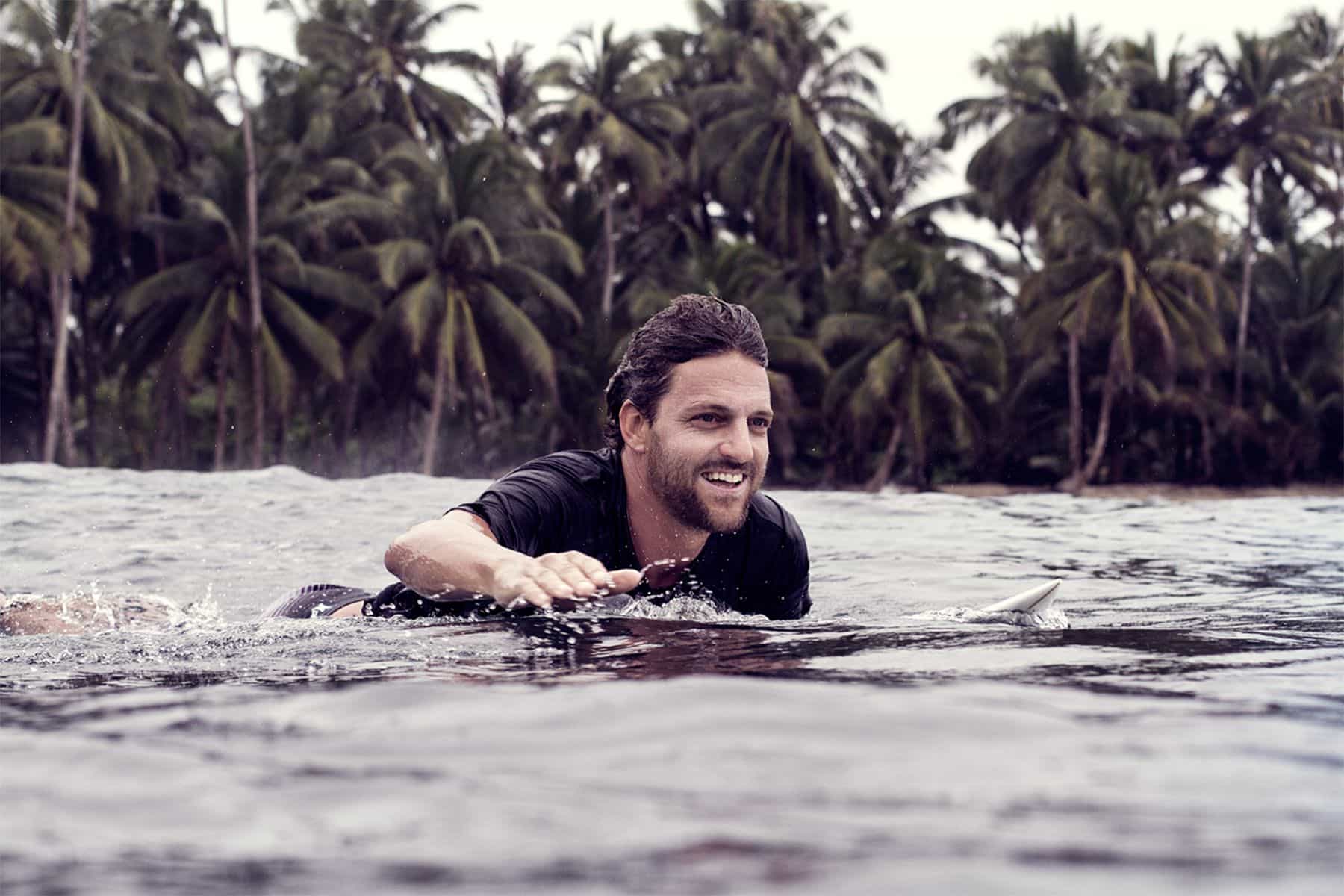
Surfing is (for the most part) a very positive activity and lifestyle, not least of which for its participants. It’s possible for this positivity to also spread into other areas of surfer’s lives, allowing surfers to extend their own wellbeing to the benefit of others. This is especially true when we explore different corners of the globe in search of good waves and are confronted by the hardships often experienced by host or local communities in the vicinity of world-class waves. Often these hardships are reversible if addressed properly, and although some make an effort to widen their surf-centered experience to take action, many simply return home with a feeling of wanting to do something, but failing to do so.
Jon Rose’s experiences as a traveling professional surfer and his encounters with local communities in faraway destinations (and consequently witnessing some of their basic needs and issues) became closely intertwined. After a moment of intense insight, Jon felt that his relationship with surfing and humanitarianism didn’t have to stop when he boarded that plane home – so he decided to do something about it. That “something” eventually came to be called Waves For Water, an organization founded in 2009 with a focus on providing clean water to communities in need. Inspired by this story of using a passion for surfing as a jumping-off point to contribute positively to the world, we asked Jon a few questions to find out how he went from being in the water, to providing access to water.
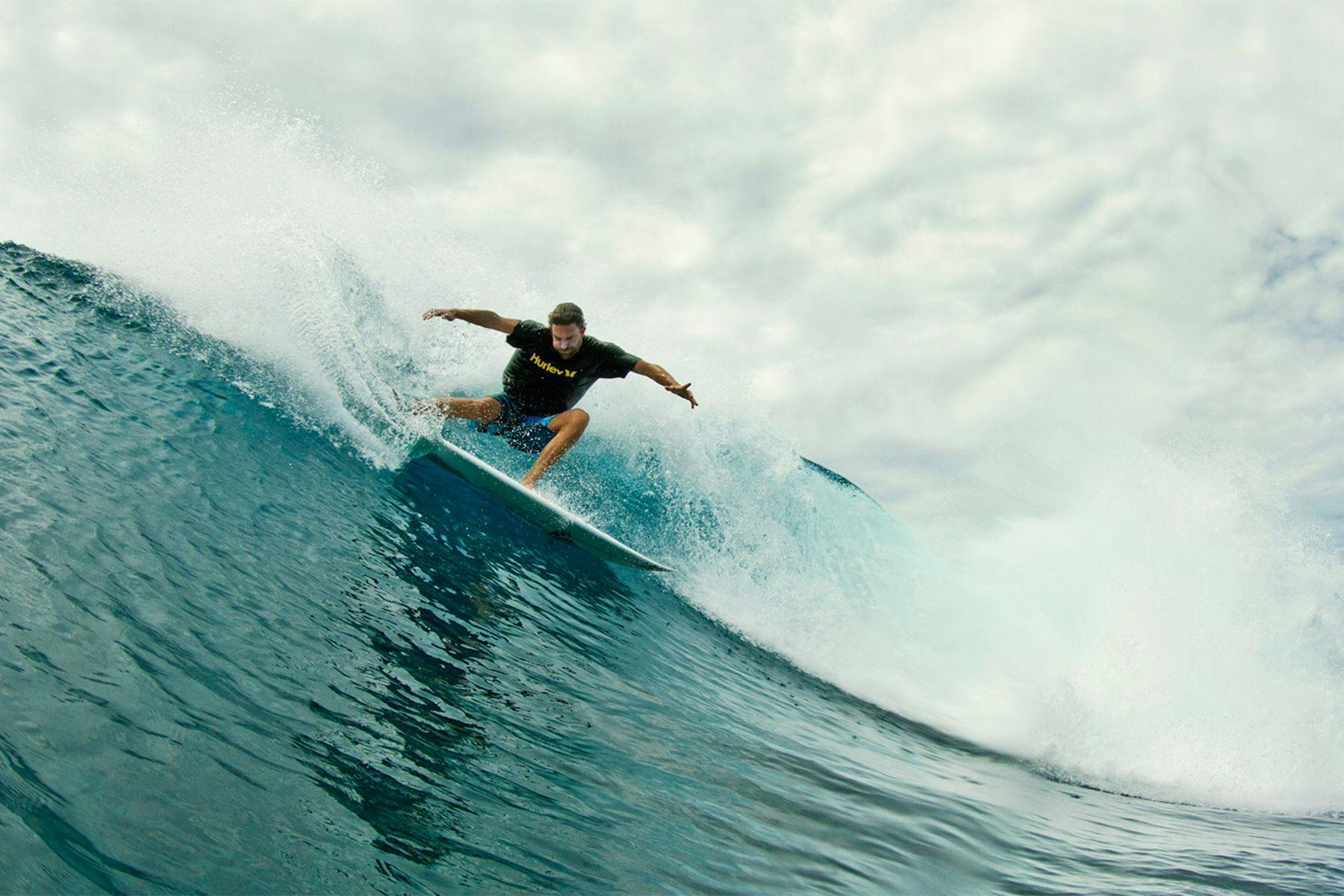
1) Can you tell us a bit about your background as a professional surfer and how the idea of W4W came to be?
I spent 13 years as a professional surfer. I did the competitive tour for about half of those years and the rest was spent exploring for waves in remote locations. I’ve always been somewhat socially conscious, or tried to be, though as a pro-surfer I had a pretty self-indulgent lifestyle. When my dad got involved in the water cause, I supported him in his passion. I saw what he was doing with Rain Catcher, the organization he started, and thought it was great. He worked in Africa, focusing on developing simple ways to catch rainwater and teaching people how to do that themselves so they didn’t have to walk five miles to a pond.
Then in September 2009 I was aboard a boat off the coast of Sumatra during a surf trip in when I felt a slight shake. I had no way of knowing at the time, but a 7.6 earthquake had destroyed the nearby city of Padang – with more than 1,000 lives lost and 100,000 homeless – until I came to shore and saw the devastated city. I happened to be en route to Bali to deliver 10 water filters for what would have been the first Waves For Water mission. But with tragedy striking Sumatra, I went into Padang to get water filters into the hands of rescue workers to help those who were most in need of clean water. That was really the start of Waves For Water.
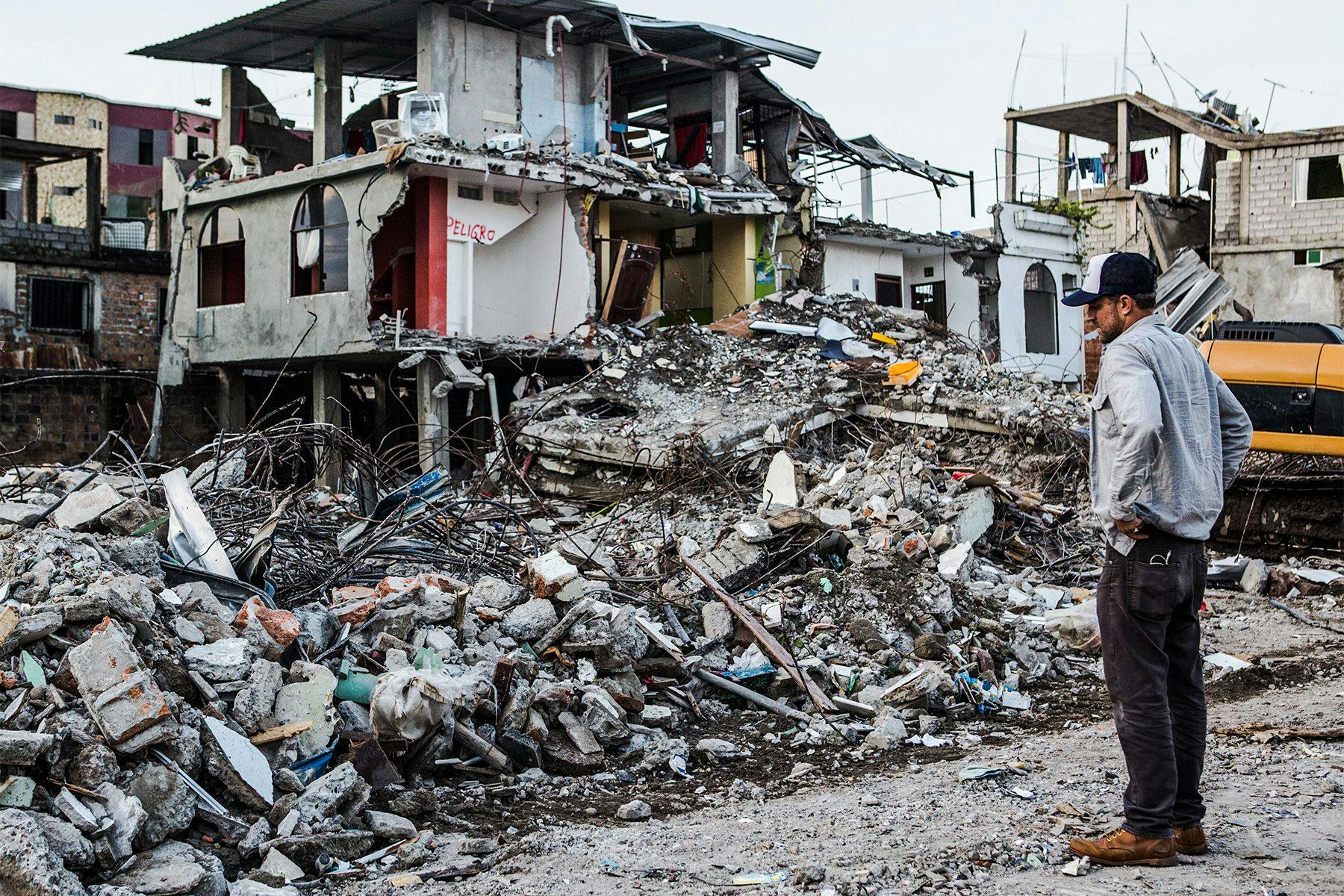
Now, Waves For Water works on the front lines to provide access to clean water to communities in need around the world. In addition to our primary focus around clean water, we focus on disaster relief efforts globally, working directly with world leaders and strategic partners who take a no-nonsense attitude toward making global change. In the past 7 years, we have worked in 44 countries, with active programs in 23, and have responded to 33 disasters globally. With over 155 programs consisting of water filtration systems (150,000+ filters implemented), wells and rainwater harvesting systems we have impacted the lives of up to 3,750,000 people.
2) What are the different approaches W4W uses to assist communities in need of clean water?
Our program consists of three major solutions: rainwater harvesting systems, the construction and restoration of new/old wells, and portable water filtration systems. For example, when we embark on a new (non-disaster related) development project, our first step is to do a needs assessment of the target area. Then, based on our findings and budget, we will design the appropriate program for that location. In many cases, it’s a combination style program, with either rain-catchment systems or wells, to provide a source of water, plus portable water filtration systems for each household – to ensure that the water source they are pulling from, will be safe.
The MVP Filtration system we use is the fastest, easiest and most cost efficient way to get pure potable water to communities in need. At 0.1 micron absolute, it is impossible for any bacteria, protozoa or cysts to pass through the filter i.e. Cholera, Botulism, Typhoid, Amoebic Dysentery, E. coli, Giardia etc. One filter has the potential to provide 100 people with clean water for up to 5 years, which is one million gallons.
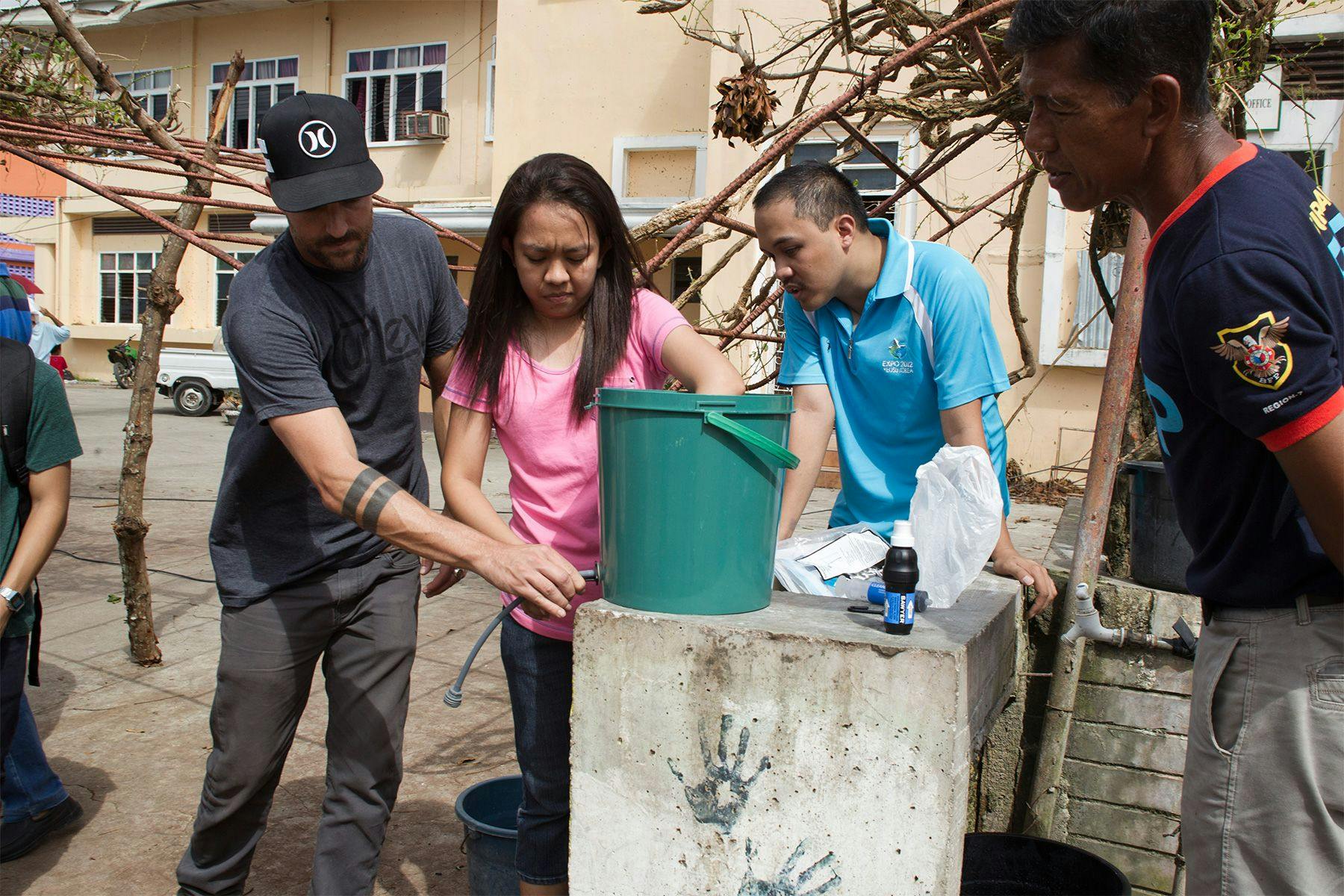
3) It sounds like a lot goes into your programs in terms of technology, administration, and personnel. So, how are the different missions of W4W funded?
Our focus is solely on creating and carrying out the best field programs possible. To achieve this, we partner with other organizations, corporations, or individuals who know specifically of a need and, having the funds to put towards it, finance us to design programs to solve the issue. When it comes to our disaster relief programs, Mother Nature decides where we work. We have teamed up with large non-profit and government agencies to provide large-scale solutions as well as with smaller organizations, invariably creating solutions adapted to the projects specificities. We are always the implementing partner on projects, making sure that the available technologies along with the quality education to operate them get in the hands of the individuals in need.
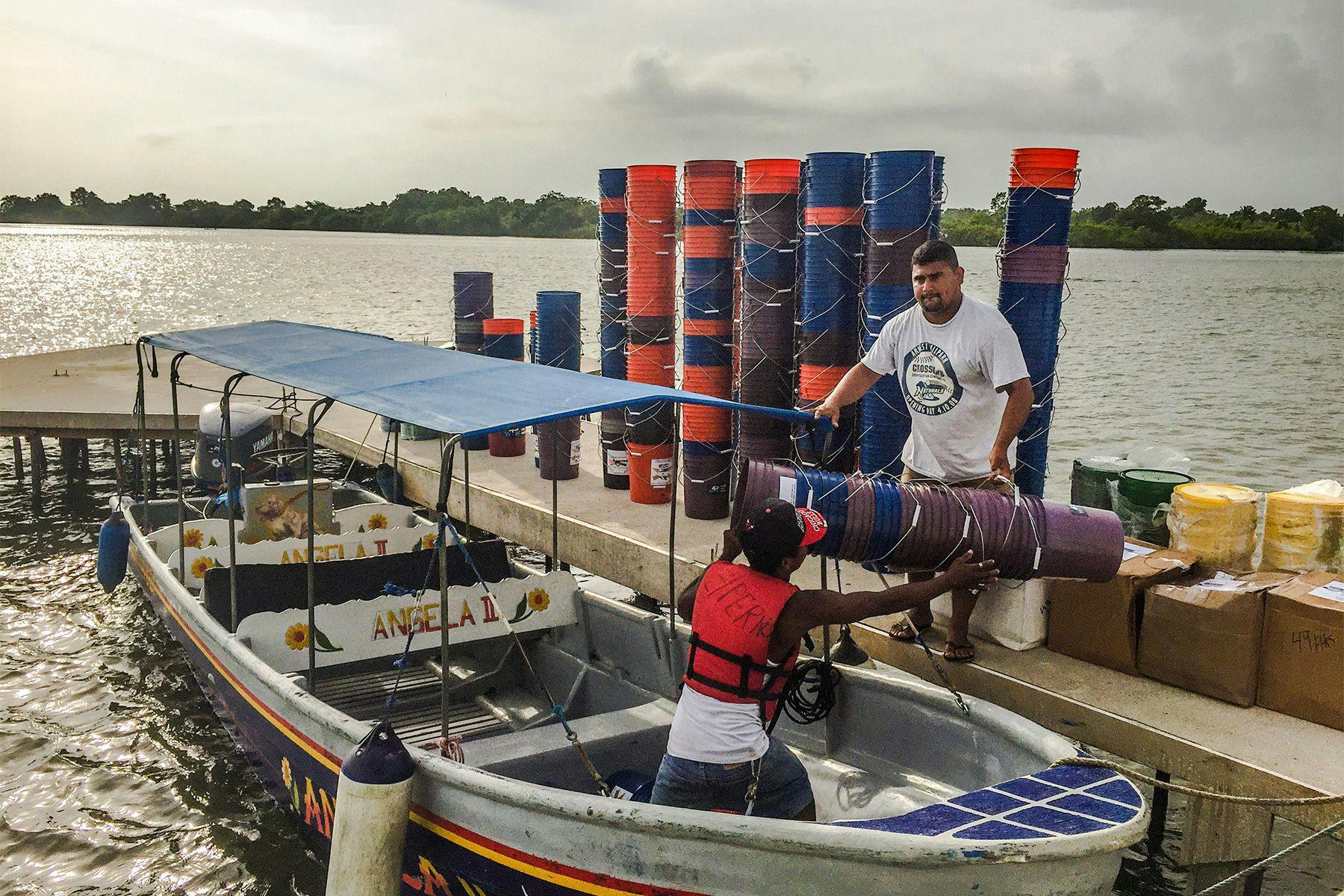
4) Waves For Water has also been coordinating and executing natural disaster relief efforts. How do you and the team structure a new “intervention” when a disaster takes place?
Based on our experience of developing and empowering local networks, Waves For Water partners with organizations, corporations, and/or individuals to implement our programs through those who choose to use their skills to step up and take on leadership roles in their respective communities. This process enables us to truly connect with people, establish a sense of trust and rapport, and provide a high level of individual attention and personal care to all of our projects. It’s our belief that collectively we have the ability to stand as one.
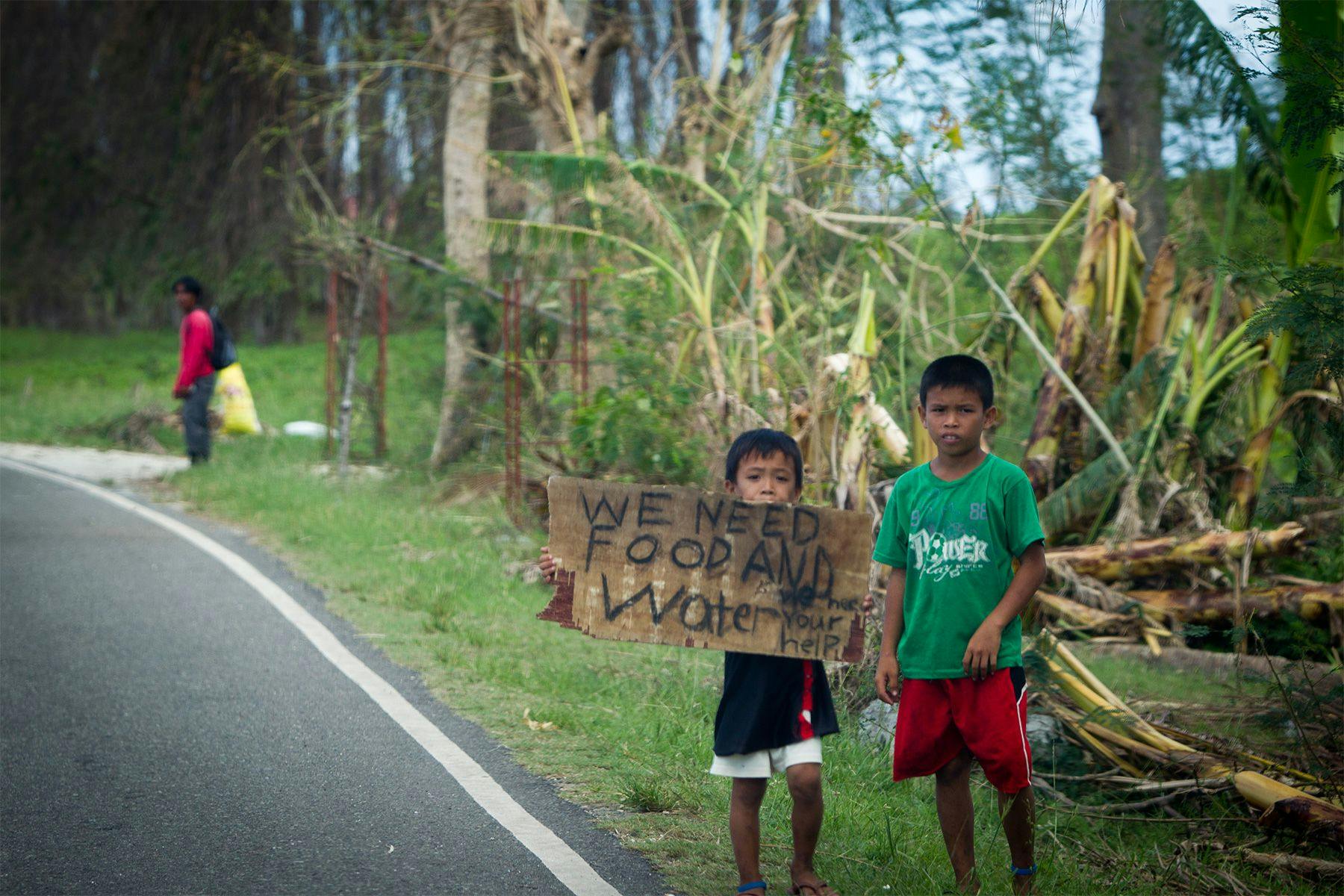
Because we understand that the first few weeks after a disaster are crucial in stemming the spread of waterborne diseases and life threatening dehydration, we launch our response in three phases:
- The first phase is designed to mitigate the immediate suffering of the most impacted families, by implementing portable water filtration systems in communities (both to shelters and residences still left standing) living at or below the poverty line. These are communities that already needed our program prior to any disaster, making them the least equipped to handle a catastrophe. We have seen this scenario many times in Haiti, most recently with Hurricane Matthew last year, and it is the little under-served “forgotten” communities that really feel the worst of what these events have to offer.
- After we have addressed the immediate need for clean water, phase two will serve to address breakdowns in water infrastructure through the creation of large and centrally-located water depots. These are big systems that can serve entire communities, rather than just one household.
- The third phase will analyze data that has been compiled throughout the first two phases, allowing us to design and implement long-term mechanisms to change the way water is accessed for years to come – such as rainwater harvesting systems, borehole wells, and/or desalinization systems.
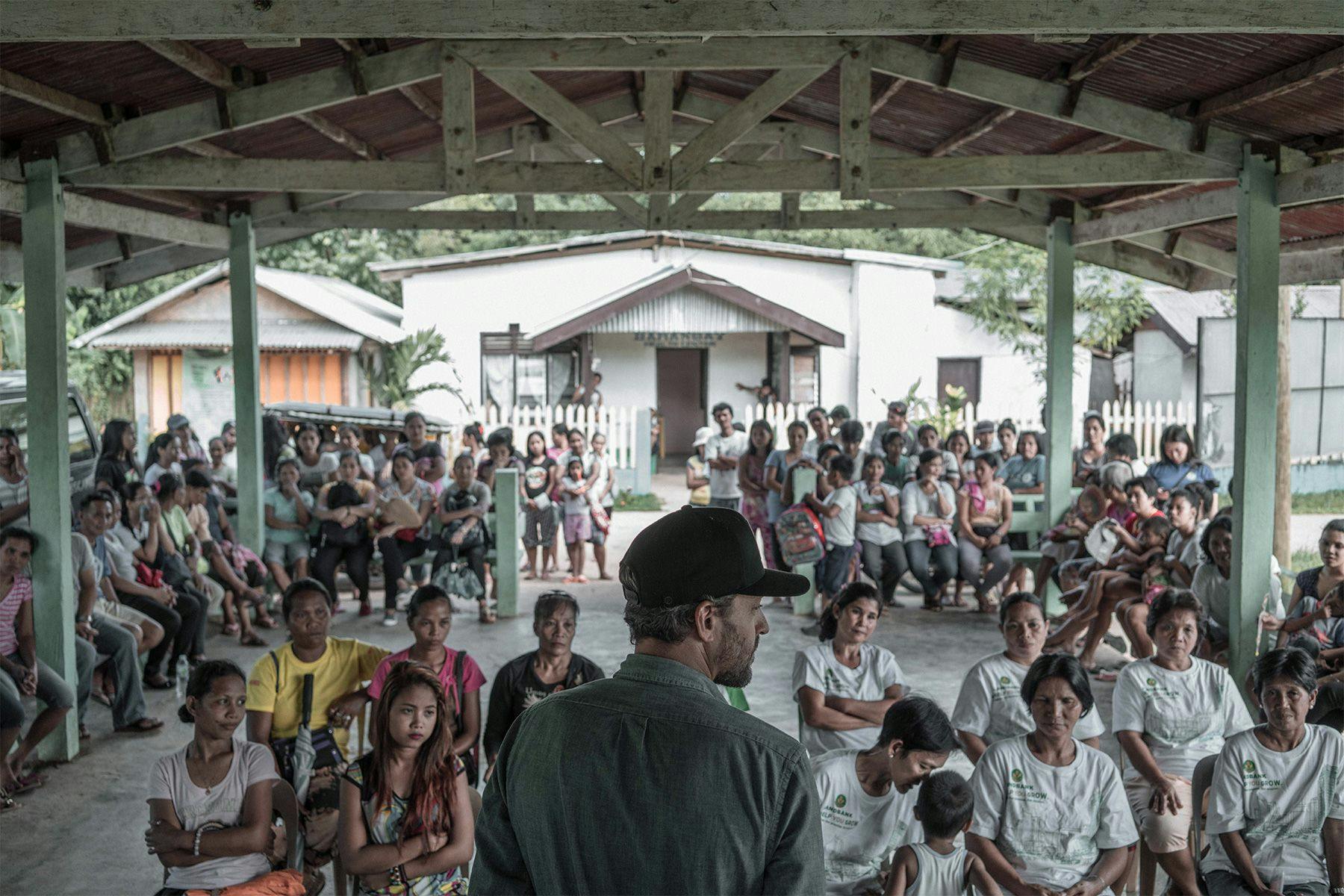
5) How is surfing connected with the project (both in theory and practice)? And how can any given surfer get involved?
Waves For Water’s philosophy is rooted in “doing what you love and helping along the way.” It’s about following your heart and plugging purpose into your passion. We encourage people to look at aid-work or humanitarianism as a lifestyle, rather than a component of doing good and giving back. It’s a paradigm shift in the way we currently think: you do what you love – sail, surf, bike, hike, etc…. and then plug in a purpose along the way. Not only does it create a very vital existence, it enhances everything you do.
6) I imagine that working in any field related to natural disasters is exhausting to say the least. As a mere human being, what was the toughest situation you have ever gone through?
I have worked in over 14 disasters at this point and have definitely had my fair share of growth with each experience. I know without a shadow of doubt that I had severe PTSD after my first 6-12 months in Haiti. But honestly, I went and saw a specialist shortly thereafter and she helped me develop tools to be able to process some of the experiences… because we can’t let them go until we’ve processed them. After Haiti, I was just shut off emotionally and slowly but surely I got back to center and have since created a good balance within to deal with these types of situations.
7) Also, we have to ask: where did you find the best (or most surprising) waves?
It’s hard to beat a good Mentawaii boat trip. It’s got it all from variety of breaks to variable winds… it really is such a playground for surfers.
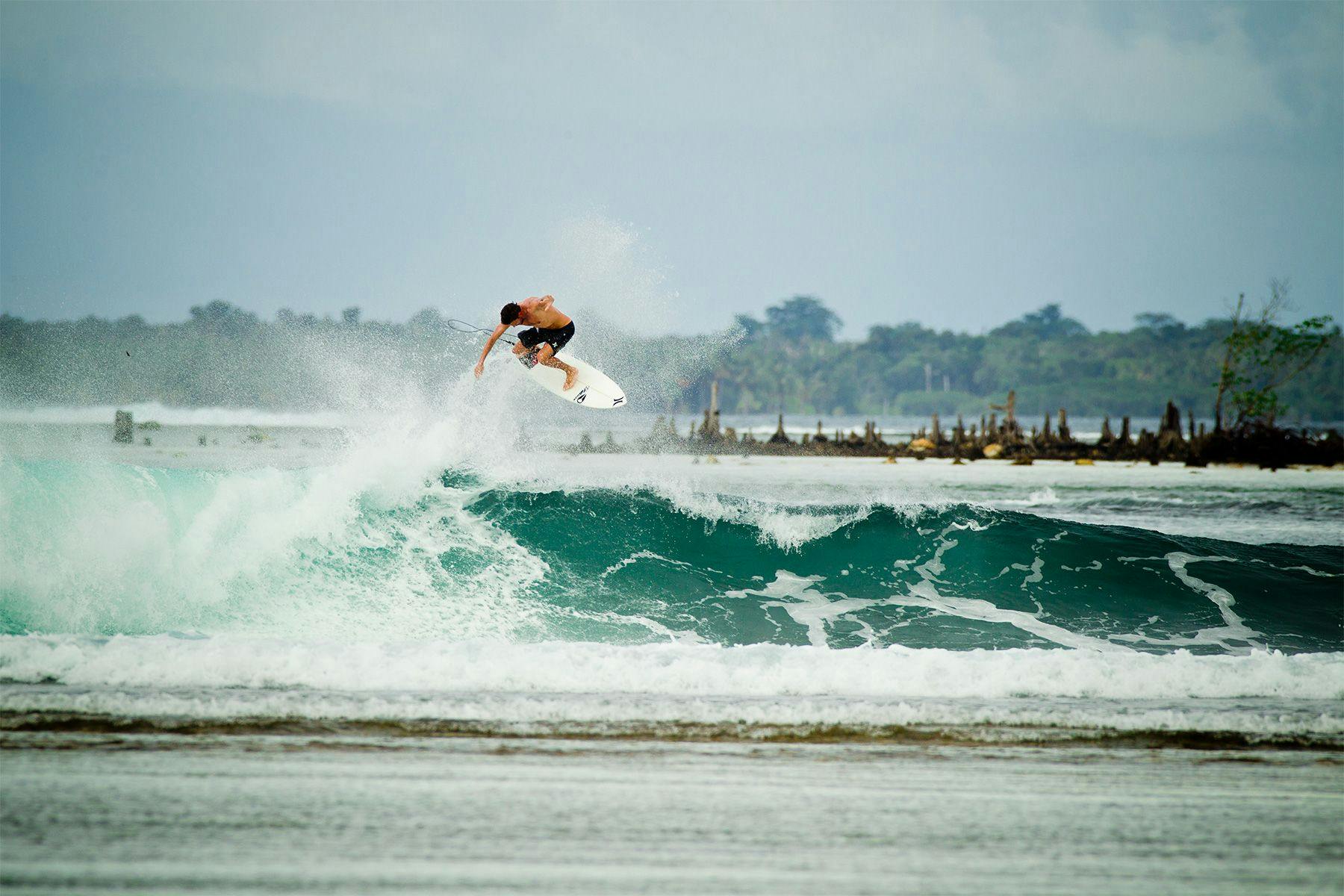
8) One thing that caught my attention when reading about the project was what is described as the Guerrilla Humanitarianism model. Can you briefly explain the concept and how you implement it?
Guerrilla Humanitarianism is about taking a no-nonsense, stripped down approach to determining the essentials needed to complete a task: you take matters into your own hands, bringing a solution directly to a problem, under the radar and around the red tape. Encouraged by the proven efficiency of this model, Waves For Water is focused on effecting a global change, one that addresses the challenges faced by philanthropic initiatives in a more decentralized way.
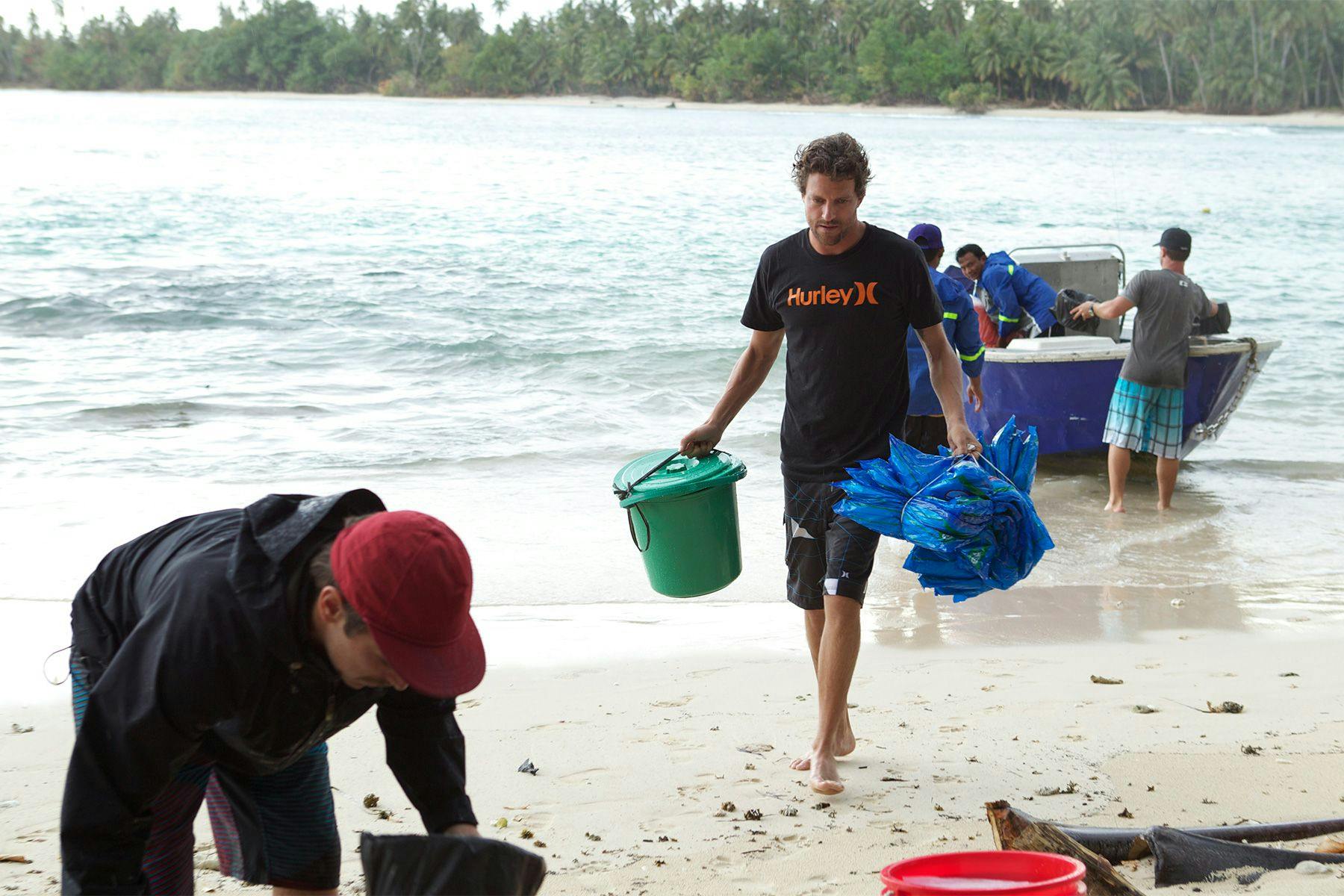
9) Finally, how do you see the future of W4W?
Our goal is to get clean water to every single person who needs it. It’s hard to say when we’ll be able to achieve this, but our organizational structure and work is built upon trying to get as many people as possible involved in this mission. The idea isn’t to get one person to drop off 100 clean water filters and call it a day. Let’s instead try to get 100,000 travelers to each pack 10 small filters, or team up with groups to implement projects with larger filters for an entire village. Then, the world will start to take notice and we’ll be that much closer to realizing the ultimate vision. But the biggest thing I like to highlight and remember is to always think about addressing this challenge in a decentralized way – a viral way… as a group, a movement, we can solve this problem… and in our lifetime no less.